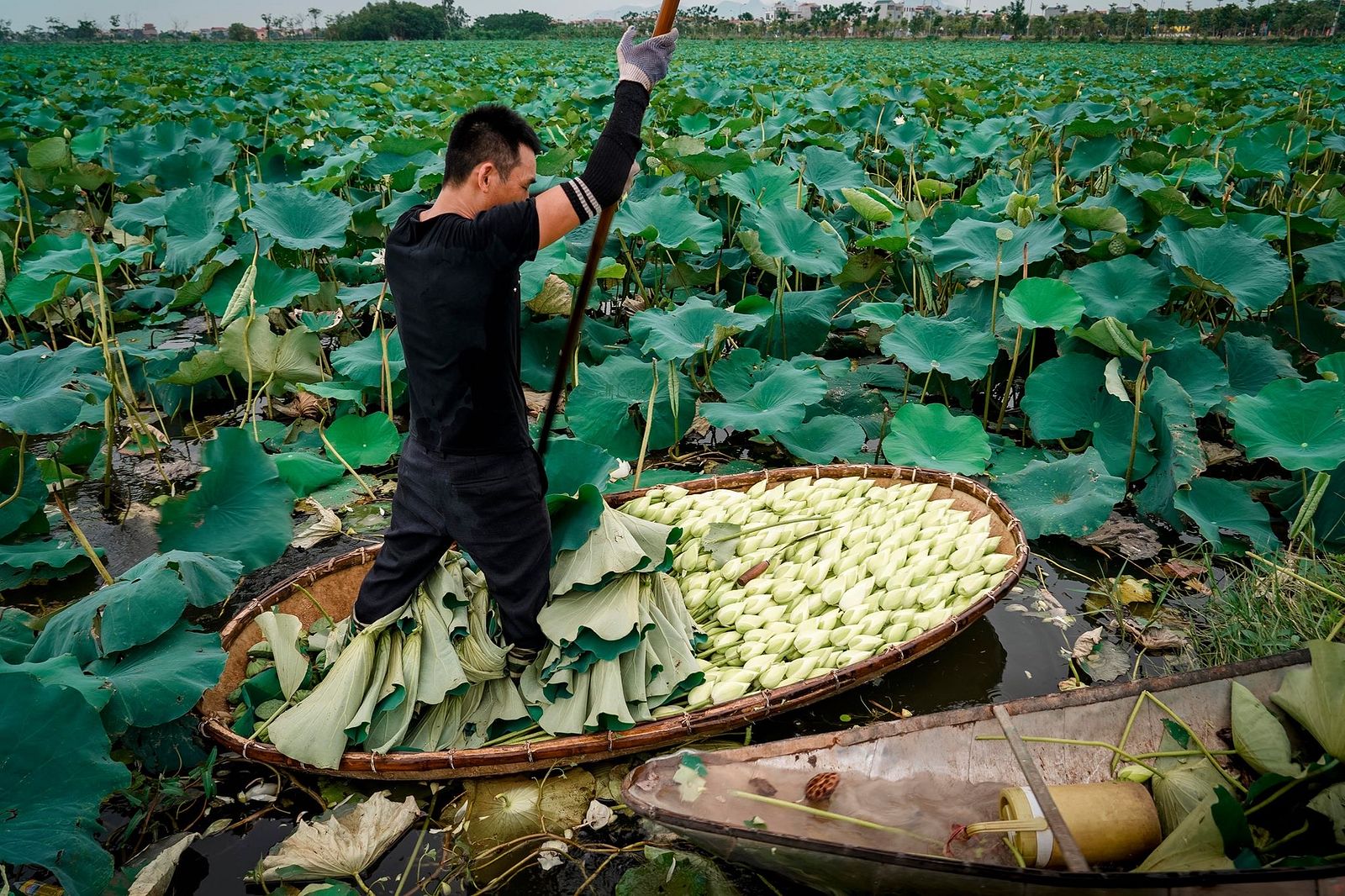For Lã Quang Khanh, a resident of Me Linh District, the term khởi nghiệp, or startup, has nothing to do with technology.
Instead, it means experimenting the farming of an alternative crop. The young man certainly does not lack ambition and passion when it comes to working with lotus plants.
Thirty kilometers north of Hanoi, Me Linh is known as a flood-prone area where rice cultivation is both unsustainable and relatively unprofitable. Small farmers usually leave their land fallow due to excessive stagnated water. After learning about lotus farming as an alternative, Khanh decided to give it a try.
Fully supported by his family, Khanh embarked on the journey in 2016. His biggest challenge was to accumulate land from farmers with small plots for lotus cultivation. From an initial area of 5 hectares, Khanh went through tireless negotiations with hundreds of households to reach an area of approximately 50 hectares, creating what he says is the largest lotus farm in northern Vietnam along the way.
Persistence, insight into local practices, and a commitment to fairness contributed to this outcome. A modified barter system was established whereby the farmers authorized Khanh to use their uncultivated land in exchange for an amount of rice annually, plus a commitment to an equal share of monetary compensation should the authorities decide to convert any land into urban infrastructures or industrial parks.

A breathtaking view of the lotus farm.
The other challenge that Khanh faced was the selection of lotus varieties. Starting from scratch, Khanh traveled to different regions of Vietnam to learn about the lotus plant, its farming conditions, and commercial consumption. His first crop was a loss, as the selected lotus type was neither productive nor resilient.
Khanh persevered though, and found two other varieties of lotus that have proved marketable. To date, this adaptation appears to be a sensible move, and Khanh’s hard work has started to pay off. And hard work it is: during the harvest season, he often starts work at 4am, takes a few short breaks during the day, and finishes around midnight.
Products of Khanh’s farm are marketed to suit local demand for food, tea, and floral displays. Fresh flowers are picked up for wholesale at the farm, are then distributed to markets all over Hanoi. A network of small traders quickly formed once traders learned about Khanh’s success, and the farm supplied about 20,000 flowers daily over the summer. Fresh seeds are also sold for cooking. Khanh proudly estimated a turnover of approximately VND500 million (US$22,000) for the 2020 crop.
Labor for the farm is sourced locally and through Khanh's family, including about 20 local men who pick lotus flowers, while extended family members, including some school kids, help peel seeds and scent teas. While remaining committed to the quality of natural scenting, the workers have learned from their experience to modify traditional scenting process to increase productivity.

Fresh lotuses being transported to buyers at markets.
And, in a modern twist, Khanh set up a Facebook page for the farm and advertises it as a location for photography shooting. His future plan is to add ecotourism to the business, in addition to introduced more products.
A non-commercial aspect of the project that Khanh and his community may not have expected at the start is the restoration of the local ecosystem. Since the farm land and the water is not fertilized, insects and birds have begun living in the lotus. Bird watchers can spot common Asian birds such as the lesser whistling duck, Eurasian coot, and cisticolidae at sunset and sunrise.
It is not hard to understand that Khanh and his co-workers are grateful for the lotus. Even the muscle-built men who are hired to pick flowers have a soft spot for the plant's beauty. Perhaps it has become a spiritual experience for them, in addition to a way to make money. As the lotus flower has always been associated with Ho Chi Minh and symbolizes the national spirit, they feel blessed to work with the "sacred" flower. Khanh’s cousin, who is in charge of tea scenting, solemnly told me in Vietnamese, “the lotus flower season starts on May 19 and ends on September 2. It overlaps with Ho Chi Minh's birthday and death anniversary.”


















